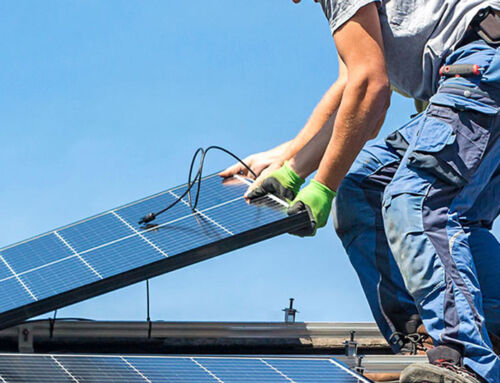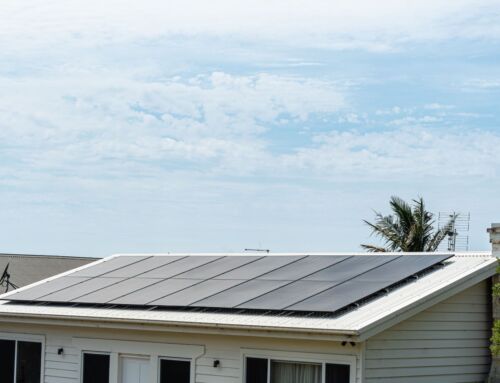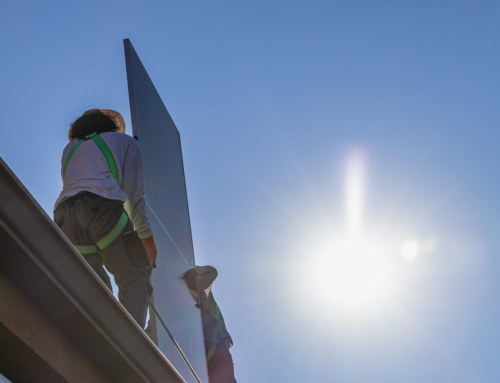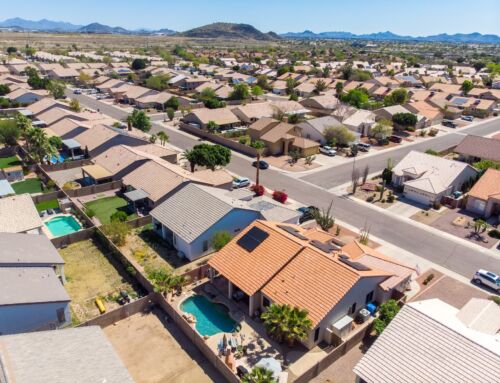Can a Solar Battery Run an Air Conditioner?
In Arizona, air conditioning is essential, especially during the summer. But electricity costs are rising, and running your AC is more expensive than ever. Meanwhile, the electric grid is under a lot of pressure to meet growing demand, which puts you at risk of a power outage.
Many homeowners are turning to solar panels and battery storage to solve these problems. Using solar to run your AC will save you money on your electric bills, and the battery will keep things going during a power outage.
But can a solar battery really run an air conditioner?
The Short Answer: Yes, If You Have the Right Setup
It’s possible to run your air conditioner with a solar battery, but there are several factors to keep in mind. Air conditioners are power-hungry appliances. To run one, your solar and storage setup needs to be carefully sized and designed.
What You Need to Power Your AC with Solar Battery Storage
1. Enough Storage Capacity
Solar batteries work by storing electricity for later use. If you want to use your stored electricity to run an air conditioner, you need to make sure you have enough of it. Since air conditioners use so much power, you will likely need more than one battery, especially if you want to use your battery to back up other parts of your home at the same time.
2. A Powerful Inverter
The most important factor when running your AC during a power outage is having a powerful enough inverter. Arizona homes are most often cooled by large 3-5 ton AC units. These big units require a large surge of power to turn on and run, which comes from your inverter.
Most solar installs are done with grid-tied inverters, which are designed for efficiency, but they cannot keep up with the surge of power necessary to start a big air conditioner. For that task, it is usually best to use an off-grid type of inverter, which are designed to start and run large motors without the help of the utility grid.
3. Adequate Solar Output for Recharging
Running an air conditioner with a solar battery will drain the battery quickly. To keep it running, you need to be able to generate enough power with your solar panels to recharge the battery consistently.
4. An Energy-Efficient Air Conditioner
You don’t necessarily need an energy-efficient air conditioner to run it with a battery, but it will make things easier. Energy-efficient air conditioners and heat pumps use less electricity to cool your home, so you can back them up with less battery capacity.
Pros & Cons of Running Your AC with a Solar Battery
There are a lot of benefits to installing a solar battery that can run your air conditioner, and there are also some downsides to consider.
Pros
- Stay safe and cool during a power outage
- Reduce electricity costs for air conditioning
- Use solar energy to run your AC at night
- Clean alternative to fossil fuel-powered generators
- Quiet and low maintenance
Cons
- You will likely need multiple batteries, which increases costs
- An air conditioner will drain your battery quickly
Generators vs Solar Batteries for Air Conditioning: Which Is Better?
A solar battery is a good option if you’re looking to back up your AC, but it’s not the only option. A generator can also do the job, and in some cases, it might be a better fit.
Why Use a Generator to Back up Your AC?
Standby generators are a great option for long-term backup power. They can easily handle the surge required to start large appliances like air conditioners, with power to spare to run the rest of your home at the same time. With the right-sized generator, you can keep your whole house running nonstop during a power outage as long as you don’t run out of fuel.
But generators have some trade-offs. They require regular maintenance and refueling, which adds to your costs. Plus, they use fossil fuels and can release pollutants into the air around your home. And, they’re noisy.
Learn More About Your Backup Power Options with a Free Consultation
At SouthFace Solar & Electric, we install custom backup power solutions tailored to your home. We can help you compare your options and choose the right fit for your home and your backup power needs.





